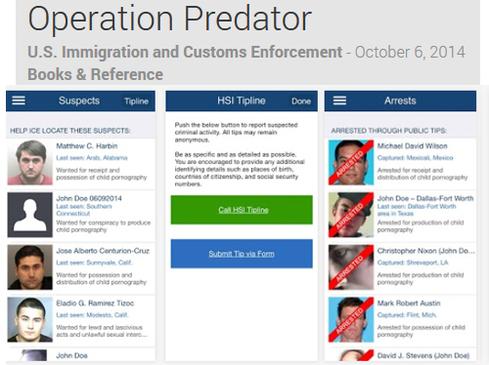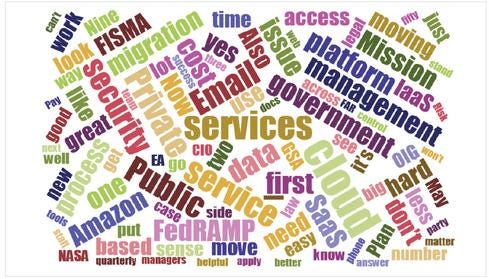Immigration Agency App Targets Child Predators
Immigration and Customs Enforcement launches Android and Spanish-language versions of Operation Predator, a mobile app the public can use to help the agency catch child predators.


5 Early Cloud Adopters In Federal Government
5 Early Cloud Adopters In Federal Government (Click image for larger view and slideshow.)
When Immigration and Customs Enforcement (ICE) released its Operation Predator app for Apple devices in September 2013, the agency's Homeland Security Investigations (HSI) unit apprehended a suspected child predator featured in the app within the first 36 hours of the launch.
As the name suggests, Operation Predator enlists the public's help in locating and identifying child predators, and it's the first federal law enforcement mobile app of its kind, said an ICE spokesperson. Now ICE is expanding the app to Android devices on Google Play in an effort to increase public outreach. To expand the app's scope further, the agency also launched Spanish-language versions for Apple and Android smartphones this week.
The app houses a database of suspects, including their names, their photos, where they were last seen, and the reason they're wanted -- such as possession and distribution of child pornography and sex-trafficking children. Users can receive alerts on their smartphones about wanted predators, share information via social media, and assist HSI by calling or submitting an online tip.
[Will robot boats someday defend us? Read Navy Tests Swarming Autonomous Boats.]
ICE is just one example of how agencies are extending their services to the public via mobile apps. More than 100 government-created apps are available on Apps.USA.gov. They're organized into topics such as health, reference, utilities, and navigation. Most government apps are designed to serve and educate the public or, in ICE's case, enlist the public's help.
This year, InformationWeek Government featured six apps released in recent months with the highest user ratings. In 2013, we profiled 10 Helpful Apps From Uncle Sam.
The federal government frequently launches apps to meet the goals outlined in the Digital Government Strategy, which requires agencies to produce mobile versions of at least two priority customer-facing services. The majority of apps that initially appeared on Apps.USA.gov were designed for iPhones and Android smartphones. The site has grown to include more BlackBerry and Windows Phone apps, though that list is still short.
Besides offering support for more operating systems, agencies have other roadblocks to overcome as they continue to launch apps, particularly when it comes to the cost of native app development. Agencies might have to move to a "build-once, deploy-anywhere approach in which agencies can rapidly convert mobile-optimized web pages into mobile apps that can be deployed across multiple platforms," Brian Paget, technical director for content and analytics at Adobe Agencies, wrote in an InformationWeek Government article in May. Such a strategy would significantly reduce the cost of developing cross-platform apps and reduce the development process, he said.
Join us at GTEC, Canada's government technology event. More than 6,000 participants attend GTEC -- Government Technology Exhibition And Conference each year to exchange ideas and advance the business of information and communications technology (ICT) in government. Don't miss thought-provoking keynotes, workshops, panels, seminars, and roundtable discussions on a comprehensive selection of ICT topics presented by leading public sector and industry experts. Register for GTEC with marketing code MPIWKGTEC and save $100 on entire event and conference passes or for a free expo pass. It happens Oct. 27 to 30 in Ottawa.
About the Author(s)
You May Also Like







